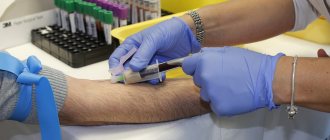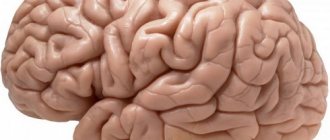Gastric neurosis (dyspepsia caused by nerves) is a dysfunction of this organ, which can be triggered by a certain list of external and internal factors. Neurosis can develop in any part of the body where sensory nerve endings are present. Gastric neurosis is a pathological condition caused by a violation of nervous regulation, which can occur in any group of the population, regardless of age, gender, physique, etc. Pain that manifests itself in neurosis most often occurs after the patient has suffered a severe psychological condition. The sensations that a person experiences are similar to the feeling of hunger.
Causes
As mentioned above, the main reason for the development of the disease is an unstable psychological state (neurasthenia). Neurasthenia manifests itself as follows:
- constant stress;
- depression;
- overwork;
- chronic lack of sleep.
The group of mental factors that influence the disease include:
- psycho-emotional exhaustion;
- constant irritability;
- mental disorder;
- internal personal conflict;
- psychological trauma.
Reasons that can cause pain in the nerve endings include dietary disorders:
- frequent overeating or undereating;
- abuse of carbohydrate, fatty, pickled, seasoned foods;
- consumption of large amounts of alcohol;
- decreased water balance (a person does not replenish the required water balance, after which a sharp deterioration in the general condition of the body is observed);
- frequent violations of the temperature regime of food intake (in the presence of abdominal ailments, it is recommended to eat food at room temperature so as not to aggravate the condition of the organs and not have a pathogenic effect on their functioning);
- improper distribution of food resources during the day; It is recommended to eat small meals so that the body has time to thoroughly digest and eliminate food.
The development may also be caused by the following list of factors:
- the presence of infectious/bacterial diseases of the gastrointestinal tract, especially the stomach (ulcer/erosion/gastritis/neoplasms);
- pathological condition of the stomach, which is caused by intoxication/poisoning/other disruption of the internal organ;
- diseases of the gastrointestinal tract and endocrine system.
Symptoms of gastric neurosis
The general symptoms of neurosis have a varied clinical picture. One of the primary manifestations of the disease is abdominal discomfort and a feeling of oversaturation with food. Spasmodic pain appears, which is localized in the pit of the stomach or in the lower part of the rib. The symptoms are similar to those of gastritis and the common cold. The patient's general condition sharply deteriorates and performance decreases. At the same time, the acidity of gastric juice decreases in the body, mucus accumulates in the stomach, and exhaustion occurs. Basic symptoms:
- neuralgia (nerve damage, which manifests itself as spasmodic pain and discomfort);
- nausea, vomiting;
- a sharp jump in body temperature;
- fatigue;
- formation of white plaque in the oral cavity;
- frequent belching;
- nervous chewing process (nervous twitching is possible in the absence of food in the oral cavity);
- heartburn (does not stop even if you switch to proper nutrition);
- bloating/rumbling in the abdominal cavity (the entire abdominal region hurts);
- sudden loss of appetite or, conversely, uncontrolled increase;
- increased pain at night (in some cases, sharp pain begins when trying to sleep);
- temporary absence of the above symptoms while the patient is nervous or experiencing psychological stress;
- deformation of taste sensations;
- projection of pain in the stomach onto the intestinal area or other internal organs (pain begins in several places at once, which complicates the diagnosis of the condition);
- increased nervousness;
- manifestations of neuralgia.
What are the symptoms?
With gastric neurosis, symptoms such as:
- belching;
- stomach cramps;
- vomit;
- nausea;
- heartburn;
- aversion to food (scientifically called anorexia, a feeling of disgust - “a piece won’t fit in the throat”);
- indigestion (stomach upset);
- abdominal pain;
- pain in the hypochondrium;
- bloating;
- flatulence (sometimes with a rise in the diaphragm, which leads to heart pain);
- stomach discomfort (feeling empty or full);
- nervous movements in the absence of food (involuntary chewing);
- uncontrollable overeating (scientifically bulimia, the so-called “zhor” - a person absorbs all the foods in sight);
- background headaches;
- sleep disorder;
- irritability;
- general malaise.
One of the striking symptoms is aerophagia (in other words, nervous vomiting).
Immediately after eating a person is overcome by attacks of nausea. He involuntarily swallows a large amount of air. This is followed by gagging and belching with specific loud sounds, sometimes similar to screaming. The sound is produced due to the fact that air, after swallowing, first circulates between the pharynx and the cardiac part of the stomach. And only after that he returns outside.
How to recognize the disease?
Most often, gastric neurosis is recognized by the method of exclusion. When seeking medical help, the patient describes the condition something like this: “I get nervous a lot and, as it seems to me, against the background of this, a weakening of the immune system and the development of diseases have occurred. I feel unwell, like a cold, and pain in the abdominal area (stomach/intestines), which may be associated with an ulcer or inflammation of one of the internal organs.”
After diagnosis at the medical center, it turns out that the presence of gastrointestinal diseases has been refuted. This is followed by tests to determine the patient’s psychological and mental states, after which it will be possible to make a definitive diagnosis. Diagnosis and further therapy are carried out by several doctors: a gastroenterologist, a neurologist, a psychologist (or psychotherapist) and the primary treating doctor.
Stress and psychosomatic illnesses
At first glance, it seems that there is no connection between the psyche and internal organs. Therefore, to the question whether the stomach can hurt from nerves, many would answer in the negative. However, there is a connection. This was proven by experiments on laboratory rats. Animals that were regularly exposed to stress were highly likely to develop stomach ulcers. People were also tested. And they also had psychosomatic stomach diseases from nerves.
Different people reacted differently to stressful situations. The tension created provoked psychosomatic reactions. This is due to the fact that their body could not cope with stress. The psychosomatics of digestion is such that stress and gastritis go side by side.
Stomach and intestinal problems due to nerves are common. Stress accompanies a person, both at home and at work. Problems in the family, time pressure at work and other unforeseen situations cause psychosomatic disorders. For example, stress often triggers IBS - irritable bowel syndrome. This disease causes symptoms such as indigestion, upset stomach and abdominal pain. Stress also causes bloating.
To increase defenses and effectively recover, a person needs rest. Animals, when sick or injured, usually hide and rest, keeping activity to a minimum. This gives them the opportunity to recover and recover faster. A person ignores the signals that the body sends to him. He often does not have time or opportunity to rest on time. Therefore, abdominal pain arising from nervousness is a common occurrence.
In order to effectively cope with stress, a person needs the support of family and friends. In fact, it often happens that he also does not find understanding in the family. Friends become rivals. As a result, a person cannot relax and get psychological relief either at home or at work. Therefore, pain and discomfort in the stomach from nerves become its constant companions.
Certain forms of the disease
By individual forms of neurosis we mean its most severe and pronounced symptoms and manifestations. They develop due to the underlying disease and additional factors (neuralgia/nervousness/regulation of the structure of human nerves/presence of infectious and bacterial diseases (colds, inflammation of the gastrointestinal tract):
- Nervous vomiting. Occurs after every meal. A special feature is the absolute absence of nausea, pain, discomfort (considered one of the manifestations of neuralgia).
- Aerophagia. Loud belching, which occurs due to swallowing a large amount of air inside the body. This process may be accompanied by a scream, a specific loud sound. Aerophagia is characterized by improper swallowing of air. In some cases, the patient may become nervous, which will provoke an attack of aerophagia. Psychotherapeutic treatment of aerophagia is possible (explanation of the possibility and need to suppress belching).
- The development of bulimia or anorexia due to changes in appetite.
- Nervous heartburn. It is distinguished by its durability and durability. Heartburn does not go away even if you switch to proper nutrition and follow a special diet.
Diagnostics
Primary diagnosis determines the condition of the entire organism (which system is healthy and which requires additional diagnostic procedures). In case of gastric neurosis, emphasis should be placed on examining the abdominal cavity, which is compared with diagnosing the structure of the nerves (as mentioned above, the main cause of the development of the disease is nerves). Basic diagnostic methods:
- gastroenterological examination;
- consultation with a neurologist/psychologist (correction of emotional state is possible);
- establishing the relationship between the nerve system and the development of the disease.
Treatment
The main goal of therapy is to restore the normal functioning of the stomach (neurosis can simultaneously affect the intestines, which should also be treated), relieve tension from the internal organs, improve the functioning of the nerves (exclude diseases and pathologies such as neuralgia, nervousness, etc.). Therapy consists of the following blocks:
- taking medications to relieve pain in the stomach and intestines;
- taking medications to treat nervousness, neuralgia, and their manifestations;
- providing psychological assistance, working with a psychologist or psychotherapist;
- relieving general stress in the body;
- consultation with a nutritionist, introduction of an individual diet (to restore the digestive process);
- physiotherapy.
A detailed analysis of each block should be done:
Conservative therapy (drug)
It is used to relieve the patient from pain in all systems of the body, normalize the usual rhythm of life/normalize disorders that have arisen on a psycho-emotional basis/treat new acquired diseases/strengthen the nerves. The time frame for this treatment may vary depending on the patient's individual performance and treatment progress.
Work with a psychologist or psychiatrist (determined by the degree of deviation from the norm)
In-person consultations are carried out, an analysis of the patient’s behavior, the reasons that caused neuralgia or nervousness. A course of treatment and rehabilitation is prescribed to suppress the symptoms listed above. At this stage, self-medication should not be allowed, since it can ruin all the achievements of the specialists’ work.
Consultation with a nutritionist
To restore digestion, the patient must switch to fractional meals.
Neurosis of the stomach interferes with the normal functioning of the digestive process and all organs of the gastrointestinal tract (in parallel, the patient may suffer from other infectious diseases, which will have a pathogenic effect). To restore digestion, you should follow an individually selected diet. The patient should switch to fractional meals (about 5-6 small portions per day), increase the amount of fluid consumed, eat exclusively healthy foods, and stop drinking alcoholic beverages. Vitamin complexes and dietary supplements are introduced into the diet to support the body and its speedy regeneration.
Physiotherapy
Physiotherapy affects the state of the digestive (improves the functioning of the gastrointestinal tract) and nervous systems (relieves nervousness). Physiotherapy includes:
- electrotherapy;
- relaxing massages;
- hydrotherapy;
- taking baths with medicinal decoctions;
- long walks in the fresh air.
Sanitary-spa treatment with the possibility of physiotherapeutic therapy is recommended.
Please note: if you experience nervousness, feelings of malaise, or disturbances in the functioning of any part of the body, you should immediately seek help from a treating specialist.
Traditional therapy
Traditional medicine is designed to use decoctions of medicinal herbs to relieve nervousness and strengthen the immune system. It is recommended to take aromatic baths with a decoction of chamomile, mint, and valerian. Some medicinal herbs can be dried and used for medicinal aromatic oils. It is recommended not to abuse traditional therapy. It can harm the patient’s current condition and ruin the results and progress of existing qualified treatment.
Diagnosis and treatment of gastric neurosis
The diagnosis of a nervous stomach requires the exclusion of other diseases of the digestive system that present similar symptoms, such as gastric reflux, gastritis, peptic ulcer. Instrumental diagnosis involves performing colonoscopy and gastroscopy. Only after laboratory tests can one confidently recognize gastric neurosis, excluding other diseases of the digestive system.
Treatment of gastric neurosis involves taking sedatives and anxiolytics, including, for example, herbal medicines. Since the treatment of gastric neurosis is multifaceted, psychotherapy may be required. The patient needs to eliminate the stress factor. In this case, a relaxation technique is prescribed, which gives excellent results in treating the disease. The suffering person needs to change their lifestyle and learn to cope with stress.
The best solution is to sign up for yoga classes or relaxation techniques courses. Properly selected relaxation and rest in combination with yoga will improve the functioning of the body and alleviate the unpleasant symptoms of gastric neurosis. If the disease is the result of past traumatic events, then you will have to seek help from a psychiatrist or psychologist. Also, an integrated approach to the treatment of nervous indigestion requires not only eliminating the cause of the disease, but also changing eating habits. Herbal and aromatherapy will help relieve the painful symptoms of the disease.
Hops relaxes muscle tone in case of gastric neurosis
Home treatment for gastric neurosis with herbs
In addition to the therapeutic measures prescribed by specialists, home therapy is very effective. First of all, you should pay attention to your lifestyle. It is no secret that alcohol, smoking and taking certain medications increase discomfort and symptoms of neurosis. Therefore, they should be replaced with herbs with a calming and relaxing effect. For people suffering from gastric neurosis, herbal treatment can be very beneficial.
Soothing medicinal plants, for example, lemon, linden, lavender, valerian, ginseng, will help solve the problem of indigestion due to nervousness. In addition, herbal treatments are recommended to relieve the symptoms of the disease, that is, abdominal pain and cramps, nausea, heartburn and so on. Chamomile and mint have relaxing properties. Hops stimulate digestion and reduce smooth muscle tone.
Physical activity is necessary for stomach neurosis
Since pharmacological drugs cannot be taken for more than 12 weeks, the patient should learn to relieve stress on their own. Abdominal massage can help with this, as it not only improves your mood, but also gives you a feeling of relief. To combat stress, a bath with the addition of medicinal herbs or essential oils is also recommended. This relaxing activity can be accompanied by relaxing music. Remember that all forms of movement improve your mood and reduce stress. Therefore, moderate physical activity is necessary.
Gastric neurosis is not a life-threatening condition, but it makes it very difficult. The symptoms of the disease are unpleasant and tiresome. Without treatment, the disease can lead to social anxiety disorder and depression, so gastric neurosis should not be underestimated. What is needed is an integrated approach to treatment, including a review of nutrition.
Preventive measures
The patient can avoid relapse of the disease by following these preventive actions:
- Contact your doctor in a timely manner if the abdominal cavity hurts, problems arise with the general condition of the body, or psychological regulation.
- Pay attention to the psycho-emotional component of health. You should treat nervousness/neuralgia/monitor whether the patient is nervous in everyday life and identify the characteristics of his condition.
- Learn self-control. When a patient experiences psychological stress, he wants to get nervous and throw out anger, an alternative relaxation method should be chosen (medicines, sports, hobbies, etc.).
- Take medications prescribed by your doctor. Prescribe sedatives based on medicinal herbs (if the patient is very nervous). You can take decoctions of mint, motherwort, valerian, and rosemary. You should take medications if you have a cold or other infectious diseases, which can be used in parallel with sedatives (you should check with your doctor about the compatibility of medications).
- Spend more time in the fresh air, do breathing exercises.
- Rationalize physical detail (it is recommended to do daily exercises and join one of the sports of your choice).
- Establish social connection. If the patient has a bright and eventful life, there is simply no time left to “be nervous.” The patient’s own time should be occupied as much as possible, stop being nervous, and fill life with impressions and like-minded people.
Prevention
Preventing stomach neurosis is quite simple. All preventive measures are aimed at a harmonious existence in society and with oneself. Both the daily routine and the way of life in general should be built on one important principle: to avoid psychological or physical stress.
The optimal measure would be to become interested in and practice one of the sports. This is an excellent alternative for releasing accumulated aggression and tension. Any other hobby that does not require any physical activity will be similarly useful: the busier the patient is during the day, the less time he has for anxiety and negative sad thoughts. An active social life brings the same effect.
So, if your stomach hurts, this does not mean that the problem is in your stomach. Dozens of diverse psychological problems cause serious disruptions in the functioning of the entire gastrointestinal tract. It is strictly not recommended to engage in dubious self-medication, eliminating only external manifestations. At best, this will not bring any relief, at worst, it will provoke additional side disorders.










